We often turn to reading glasses as we get older, and it becomes challenging to read for long periods of time. Without reading glasses, our eyes can become fatigued, and we may experience headaches. But could there be a permanent solution?
Laser eye surgery can correct many vision errors that cause blurry vision and eye strain. In many cases, it provides a long-term solution for people with vision problems and reduces their dependence on prescription eyeglasses.
To uncover whether laser eye surgery can correct the need for reading glasses, we must first understand the root cause of why a person might need reading glasses. This is usually due to a condition called presbyopia.
Why Do Some People Need Reading Glasses?
Many people require reading glasses once they reach the age of 40. This requirement for reading glasses is most often caused by a condition called presbyopia. Presbyopia is a refractive error that gradually reduces your ability to focus on objects at a close distance.
A few parts of the eye work together to help you see correctly. First, light passes through the cornea—the transparent front layer of the eye. After refracting through the cornea, the light passes through the pupil. Then, that same light passes through the lens and onto the retina, which interprets light signals to the optic nerve creating an image in your brain.
The lens is the most important step in this process when it comes to presbyopia. When we’re younger, the lens is flexible and can bend to refract light onto the retina. As we age, the lens becomes more rigid. When the lens is rigid, it can’t focus on close-up objects, causing presbyopia.
Symptoms of Presbyopia
Presbyopia symptoms typically begin in your mid-40s and can progress slowly until around the age of 65. Some signs of presbyopia include:
- Blurry short-distance vision
- Needing bright light to read
- Frequent headaches after work
- Holding objects far away for clarity
- Increased eye strain after focusing
Reading glasses help magnify objects at a close distance, which can help people with presbyopia focus without experiencing eye strain and headaches.
Risk Factors for Presbyopia
A few risk factors are associated with presbyopia, on top of the natural aging process. One of the most commonly related factors is hyperopia, or farsightedness. Hyperopia is a refractive error when the cornea is too short and doesn’t curve enough. It causes objects at a close distance to appear blurry and out of focus.
Other risk factors associated with presbyopia include anemia, cardiovascular disease, diabetes, and eye trauma.
Can Laser Eye Surgery Treat Presbyopia?
In most cases, laser eye surgery isn’t the recommended course of treatment for presbyopia. Laser eye surgery is mainly used to correct refractive errors such as:
- Myopia (nearsightedness)
- Hyperopia (farsightedness)
- Astigmatism
All three conditions occur when the shape of the cornea causes light to refract incorrectly. Laser eye surgery works by reshaping the cornea itself to correct the refractive error, and make it as close to dome-shaped as possible.
Since laser eye surgery treats the cornea, it isn’t the best treatment option for presbyopia which is caused by a rigid lens. Laser eye surgery also only corrects vision for one distance; however, people with presbyopia may require correction for more than one distance.
There is one specific laser eye surgery technique to treat presbyopia called monovision. Monovision corrects both eyes for different distances. The dominant eye is corrected for distance vision, while the non-dominant one is corrected for near vision. Both eyes then work together to correct vision.
If you decide to pursue monovision as a presbyopia treatment, your doctor will discuss the likely vision compromises you’ll have to make. These compromises may include part-time reading glasses to deal with eye strain in the dominant eye or part-time distance glasses for the non-dominant eye.
If someone depends highly on reading glasses, monovision could be an option. The first step is to consult your doctor on your vision needs and decide on the right course of action with their help.
Getting Advice for Your Vision Needs
It can be frustrating and difficult to rely on reading glasses every day. However, it’s essential to understand that this is often a natural part of aging. While monovision can be an option for you, it’s vital to speak with your doctor about whether laser eye surgery is the proper treatment. If it isn’t, your doctor can help you find the right one.Whether you need new prescription eyeglasses, contact lenses, or another treatment option, your eye doctor is dedicated to helping you on your eye health journey.




